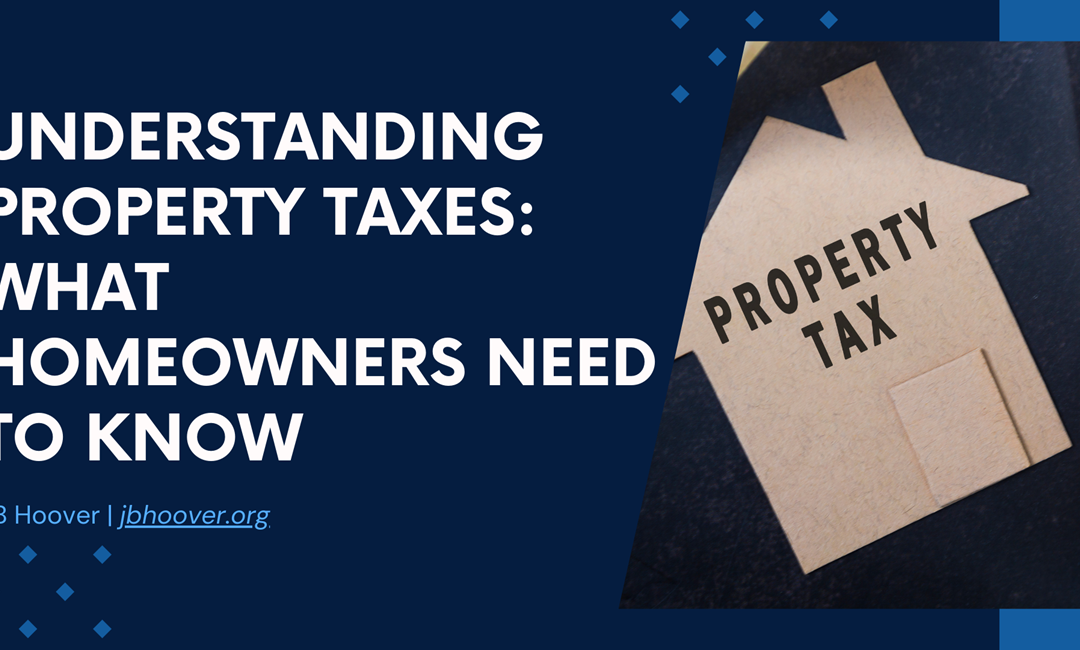
The Role of Real Estate Agents in Today’s Market
In today’s increasingly digital and interconnected world, some may wonder about the relevance of real estate agents in the home buying and selling process. However, despite advancements in technology and the rise of online real estate platforms, real estate agents continue to play a crucial role in facilitating transactions and providing valuable expertise and guidance to buyers and sellers. Here’s a closer look at the role of real estate agents in today’s market:
Market Knowledge and Expertise
Real estate agents possess in-depth knowledge of local housing markets, including current trends, property values, inventory levels, and neighborhood amenities. This expertise allows them to provide valuable insights and guidance to buyers and sellers, helping them make informed decisions based on their unique preferences and goals.
Networking and Connections
Real estate agents have extensive networks of contacts within the industry, including other agents, lenders, inspectors, appraisers, and contractors. These connections enable them to access a wide range of resources and services to assist their clients throughout the buying or selling process. Additionally, real estate agents often have access to exclusive listings and off-market properties that may not be readily available to the general public.
Negotiation Skills
One of the most valuable services that real estate agents provide is their ability to negotiate on behalf of their clients. Whether representing buyers or sellers, real estate agents use their negotiation skills to advocate for their clients’ interests and secure the best possible terms and outcomes. From negotiating purchase prices and closing costs to resolving inspection issues and contract contingencies, real estate agents play a critical role in navigating the negotiation process.
Transaction Management
Buying or selling a home involves numerous complex steps and paperwork, from making an offer and negotiating terms to arranging inspections and coordinating the closing. Real estate agents help manage these transactions from start to finish, ensuring that all the necessary documents are completed accurately and submitted on time. They also coordinate with other parties involved in the transaction, such as lenders, title companies, and attorneys, to ensure a smooth and efficient closing process.
Guidance and Support
Buying or selling a home can be a stressful and emotional process, especially for first-time buyers or sellers. Real estate agents provide guidance, support, and reassurance to their clients throughout the process, offering advice, answering questions, and addressing concerns every step of the way. Whether it’s explaining complex legal terms, providing market insights, or offering emotional support during negotiations, real estate agents are there to help their clients navigate the ups and downs of the real estate transaction process.
Real estate agents continue to play a vital role in today’s market by providing valuable expertise, guidance, and support to buyers and sellers. From market knowledge and networking to negotiation skills and transaction management, real estate agents offer a wide range of services to help clients achieve their real estate goals. While technology may have changed the way we search for and market properties, the personal touch and expertise that real estate agents provide remain as relevant and valuable as ever.

Understanding Property Taxes: What Homeowners Need to Know
Property taxes are a significant expense for homeowners and play a crucial role in funding local government services such as schools, roads, public safety, and infrastructure. Understanding how property taxes are calculated and managed is essential for homeowners to budget and manage their finances effectively. Here’s what homeowners need to know about property taxes:
Assessment Process
Property taxes are based on a property’s assessed value, which the local tax assessor’s office determines. Assessments typically consider factors such as the property’s size, location, condition, and comparable sales in the area. Depending on local regulations, assessments may be conducted annually, biennially, or on a longer cycle.
Tax Rate
Once a property’s assessed value is determined, it is multiplied by the local tax rate to calculate the property tax bill. The tax rate is expressed as a percentage of the assessed value and is set by local government authorities, including city councils, county commissions, and school boards. Tax rates can vary widely depending on the location and jurisdiction, so homeowners should know the applicable tax rates in their area.
Exemptions and Deductions
Many jurisdictions offer property tax exemptions and deductions for certain categories of homeowners, such as seniors, veterans, disabled individuals, and low-income households. These exemptions and deductions can help reduce property tax bills for eligible homeowners. Homeowners need to research available exemptions and deductions and apply for them if they qualify.
Payment Schedule
Property taxes are typically due annually, although some jurisdictions may offer semiannual or quarterly payment options. Homeowners may have the option to pay property taxes directly to the local tax assessor’s office or through their mortgage lender, who collects taxes as part of the monthly mortgage payment and pays them on the homeowner’s behalf.
Escrow Accounts
Many mortgage lenders require homeowners to maintain an escrow account to cover property taxes and homeowners insurance premiums. Each month, a portion of the mortgage payment is deposited into the escrow account, and the lender uses these funds to pay property taxes and insurance when they become due. Escrow accounts can help homeowners budget for property taxes and avoid large lump-sum payments.
Appeals Process
If homeowners believe their property tax assessment is inaccurate or unfair, they can appeal the assessment through a formal appeals process. This typically involves providing evidence to support a lower assessment, such as recent comparable sales or evidence of property damage or depreciation. Homeowners should familiarize themselves with the appeals process in their jurisdiction and be prepared to provide documentation to support their case.
In conclusion, property taxes are an important aspect of homeownership and can have a significant impact on household finances. By understanding how property taxes are assessed, calculated, and managed, homeowners can better plan and budget for this expense. It’s essential for homeowners to stay informed about local tax rates, exemptions, and payment options and to take advantage of available resources and assistance programs to reduce their property tax burden.

The Impact of Technology on Real Estate: Trends to Watch
Technology has revolutionized nearly every aspect of our lives, and the real estate industry is no exception. From property search and marketing to transaction management and property management, technology has transformed how real estate professionals operate and how consumers buy, sell, and rent properties. As we look ahead, several key technology trends are poised to reshape the real estate industry. Here are some trends to watch:
Virtual Reality (VR) and Augmented Reality (AR)
VR and AR technologies are changing the way properties are marketed and viewed by potential buyers and tenants. Virtual property tours allow users to explore properties remotely, providing an immersive experience without the need for physical visits. AR apps can overlay digital information onto real-world environments, allowing users to visualize how furniture or décor would look in a space before making a purchase.
Artificial Intelligence (AI) and Machine Learning
AI and machine learning algorithms are being used to analyze vast amounts of data and provide insights into real estate market trends, pricing, and investment opportunities. AI-powered chatbots and virtual assistants are also improving customer service and streamlining communication between real estate professionals and clients.
Blockchain Technology
Blockchain technology is transforming the way real estate transactions are conducted by providing a secure and transparent platform for recording and verifying property ownership and transactions. Smart contracts enabled by blockchain can automate and streamline the buying, selling, and leasing processes, reducing the need for intermediaries and minimizing the risk of fraud.
Big Data and Predictive Analytics
Big data analytics are being used to analyze large datasets and identify patterns and trends in real estate markets. Predictive analytics tools can forecast future market conditions, property values, and investment opportunities, helping investors and developers make more informed decisions.
Internet of Things (IoT)
IoT technology connects physical objects and devices to the internet, enabling smart homes and buildings with interconnected systems for security, energy management, and environmental monitoring. IoT sensors can collect data on temperature, humidity, occupancy, and energy usage, allowing property owners to optimize building performance and reduce operational costs.
Remote Work and Digital Nomadism
The rise of remote work and digital nomadism is changing where and how people live and work, driving demand for flexible and remote-friendly housing options. Real estate professionals are adapting by offering virtual property tours, digital lease signings, and remote property management services to cater to this growing segment of the market.
Sustainability and Green Technology
With increasing awareness of environmental issues and climate change, sustainability has become a key consideration in real estate development and management. Green technologies such as solar panels, energy-efficient appliances, and smart building systems are being incorporated into new construction and existing buildings to reduce carbon emissions and operating costs.
In conclusion, technology continues to have a profound impact on the real estate industry, driving innovation, efficiency, and new opportunities for investors, developers, and consumers alike. As we embrace these technological advancements, it’s essential for real estate professionals to stay informed about emerging trends and technologies to remain competitive in a rapidly evolving market. By leveraging the latest technology trends, real estate professionals can unlock new possibilities and create value for their clients and communities.
About JB Hoover, Newport Beach
Based in Newport Beach, JB Hoover is the Founder and Principal of National Quality Construction in Tustin, Orange County, California. Prior to starting his own business, JB spent over ten years as Vice President of Construction at a Custom Boutique Homebuilder. JB mainly focuses on real estate rehabilitation, which consists of flipping foreclosed homes into dream houses for young couples or people buying their first home. Other than his passion for his professional endeavors, JB is also passionate about golf, travel, and cars.
As a student at Whittier College in Los Angeles, JB Hoover enjoyed cars so much that he used to flip and customize them to earn extra money. However, he found few cars that he loved too much to sell and decided to keep them instead. Today, JB’s car collection includes seven rare vehicles — some of which include a few Mercedes-AMG cars, which are modeled after racing cars and are known to be characterized by the company’s courage and passion in the car-making industry.
In fact, JB’s passion for cars is what inspired him to get into the construction and development business. He noticed one of his frequent buyers had a large collection of exotic vehicles, and questioned the buyer about their career. The buyer said he was a successful construction developer in the area, and built residential real estate for families and young couples. JB became fascinated by the business, and decided to pursue the same career path by earning a bachelor’s degree in business administration with a minor in real estate. He then combined his two passions of flipping cars and construction into a business that creates affordable homes for everyday buyers.
When JB Hoover of Newport Beach is not on the job, he enjoys traveling internationally. With four continents and dozens of countries visited under his belt, JB has truly experienced the different cultures, cuisines and different climates that he’s exposed to on his travels. He particularly enjoys Western Europe in countries like Germany, Italy and Switzerland.
In addition, JB Hoover enjoys golfing on several of the beautiful golf courses that overlook the Orange County skyline. As a player of over 20 years, JB is no longer the talented golfer he used to be, but that doesn’t stop him from enjoying time outside in the California sunshine and attempting to become a scratch golfer again. Inspired by watching golf on TV and observing his grandfather and great-grandfather play the sport, JB Hoover played golf in high school and college and hopes that he, too, can play the game well into his 90s as his grandfather and great-grandfather did.

